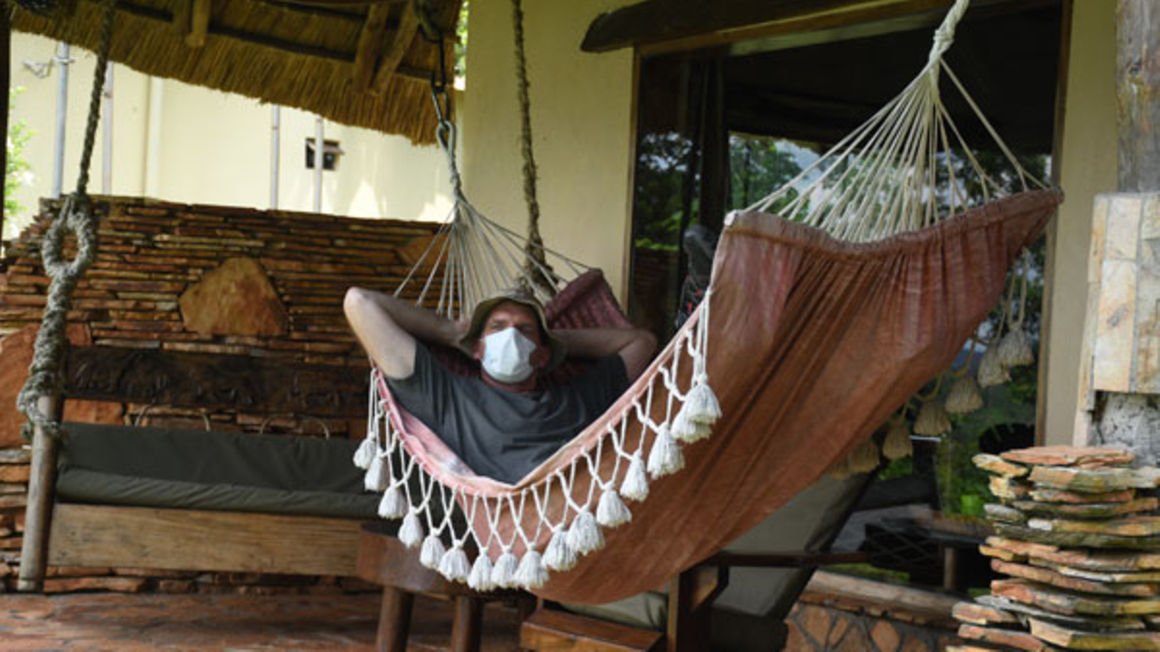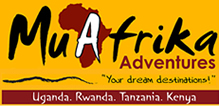Tourism sector optimistic about the new normal
At the entrance of the Bwindi Impenetrable National Park, it is a requirement to wash your hands with soap. A properly masked ranger will direct you to the registration booth.

Before you register, another ranger will ask you to get sanitised and measure and record your body temperature. The pen you use to register will be sanitsed before you leave.
The Uganda Wildlife Authority (UWA) office is another sanitising point before you can access the administrative and briefing centre. Someone will ask you to sanitise the bags.
On the noticeboard is a chart with text and image illustrations from the Ministry of Health (MoH) on best practices to observe and the expected practice Standard Operating Procedures (SOPs).
All these are new developments as the sector reopens business after the pandemic induced lockdown.
Even the brief has been revised to accommodate the new world in which the tourism sector finds itself. Joseph Arinaitwe, a park warden, informs tourists that unlike before when they were required to keep a seven-metre distance from Mountain Gorillas, they are now expected to keep a 10-metre distance.
The primates have 98.7 percent human DNA and as such, caution is exercised in order for visitors not to risk transmitting any diseases to the prized tourism attractions. These new rules have caught on quickly and many hospitality facilities have adhered to the SOPs.
Sanitise, sanitise, sanitise
Ronald Kelly Kasozi is the housekeeping division manager at Kampala Serena Hotel. He explains that the five-star facility has instituted new protocols. When they expect a guest from the airport, their driver is equipped with a mask, sanitiser for themselves and the guest.
“The car must be sanitised within the levers, door handles, and outside. As the guest approaches the hotel, we are alerted and do a pre-check in so that they do not come and queue up at the reception,” Kasozi explains.
On arrival, the guest’s luggage will be sanitised and loaded into the security machine and taken to their room. To register at the reception, he will be given a sanitised pen, briefed about the Covid-19 pandemic and how to avoid it by firstly wearing a facemask while on the premises. All lift landing areas have sanitisers. Each room has a Covid-19 kit. The manager says they are not keen on handling cash and encourage clients to book and pay online.
The reception area is sanitised every 45 minutes. The hotel has a systematised process with a Quick Response (CR) code. For now, the gym, spa, bars and swimming pool facilities are closed in adherence to the government restrictions. Nonetheless, there is still uncertainty on the inflow of foreign tourists so it has become important for hospitality facilities to rethink their sustenance strategy by particularly considering the option of attracting local tourists.
Cultivating a new base
Marasa Africa’s consulting general manager, Kenneth Mugira, says more than ever, it has become important for Marasa Africa to look into domestic tourism by introducing lower rates to draw them in.
Many tourism destinations in Uganda primarily target foreign tourists.
Many charge for their accommodation and services in dollars as opposed to the local currency.
Tourism enthusiast Gen Edward Katumba Wamala implores them to re-strategise by subsidising rates to appeal to Ugandans and local expatriates. A few have introduced ‘Covid rates’.
Previously, you would be charged $250 (about Shs925, 000) for a night at Rain Forest Lodge by City blue. At the moment, the rate has gone down to $70 (Shs262,067) per night and according to its director, Yasir Alam, more Ugandans now stay at the facility at the weekends. To entice local tourists, the lodge runs a promotion during the week where if you book for two nights, you get one free, on a full board arrangement.
Tour and travel firms are a key affiliate to lodges since they attract tourists to the country and in turn liase with lodges for their stay as they partake of Uganda’s rich tourism attractions.
Repricing
Raft Uganda’s Dennis Ntege explains that immediately after the lockdown was partially lifted, and private vehicles were allowed to operate, his company started receiving interest from Ugandan tourists who wanted to experience the spills and thrills of the Nile. The inquiries gave the water adventure company and its staff the idea to rethink their packages.
“Lowering pricing with various product offers is what we are pushing as a business to make it affordable for any potential client, whether domestic or international while reducing our operating costs without compromising safety and quality,” Ntege discloses.
“Tourism will definitely take time to stabilise but it is going to return. The budget travellers have been affected more as most of them lost their jobs and have to resettle and start saving for travel again,” argues Abiaz Rwamwiri, director of Africa Wild Explorations.
To him, the mid-range travellers will look for the best deals available and luxury travellers who are usually older, will wait to risk travelling far until a vaccine is found. Barrie Gotch is managing director of Mahogany Springs in the Buhoma section of Bwindi Impenetrable National Park. He says the facility receives a few local enquiries; one or two per month.
“And we have given extremely special offers for any local tourist,” he adds. Accommodation is cited by tourists as one of the deterrents to travel, giving what is termed as ‘mzungu prices’.
Lillian Kamusiime, the founder of Kigezi Bioata Tours confesses to initially feeling the pinch because she heavily relied on international tourists. She commends efforts by Uganda Tourism Board (UTB) to continually remind the entire world of the beauty of Uganda and announce that the destinations and hospitality facilities are ready to welcome tourists.
Lessons
The effect of the pandemic has taught many lessons. Mutamba Rubangira of Rada Safaris says his big lesson and observation is the need to focus more on local tourists and be deliberate in marketing to them. Gotch has learned that it is important to expect the unexpected and as such, prepare for bad times.
“The pandemic came in so fast and took down the industry so rapidly. We need to have a plan in the future that allows us to prepare for times like these. Working with the local communities to have contingency plans in place, whether through a fund or other ideas might work. This way, we can never be caught off guard again,” he suggests.
Ntege shares similar thoughts.
“Always plan for the unknown, be dynamic and employ staff that believe in the brand and its growth plan so that even without business and we have to take cost cuts, everyone will gladly take it so that the business survives,” he argues. He has also found relevance in using technology in marketing.
Kamusiime says she is looking at ways of making her tour company self-sustaining. Online visibility is one of key recovery strategies.
“Virtual business is the way to go with an understanding of the new travel trends. A lot has changed and we need to adapt fast,” she adds. She had to refund more than $15, 000 (about Shs56m). She had acquired a loan of $ 10, 000 (about Shs37m) to buy a tour van as an asset to the business.
Nonetheless, she is optimistic the prospects of tourism are still open. Ntege’s recovery plan is directed at focusing more on efficiency with a lean delivering team. He would like to engage in e-marketing and also undertake refresher training for all the staff.
“Our recovery plan is to enhance local tourism and have more offers that encourage local tourism.Apart from that, it is just a waiting game and hoping that 2021 sees a recovery by June,” says Barrie.
According Rubangira, the tourism sector is looking at reaching out more to his travel agents to assure and build confidence of clients about the safety of Uganda as a travel and tourism destination that has SOPs in place to prevent the spread of Covid-19 .
On the whole, Rubangira sees a bright future of the tourism sector, one where more Ugandans will explore the tourism attractions within.
“Locals have embraced getaways. For example, we organised a ground trip dubbed the Jinja ultimate camping experience’ on September 4 and 6 and got a turn up of 30 people which was encouraging,” he adds. Ntege shares the optimism, observing that people have learnt that life can change so they need to enjoy it through travel.
“More destinations are going to focus more on their domestic markets and improve them so as to be sustainable in times like these,” he adds.
